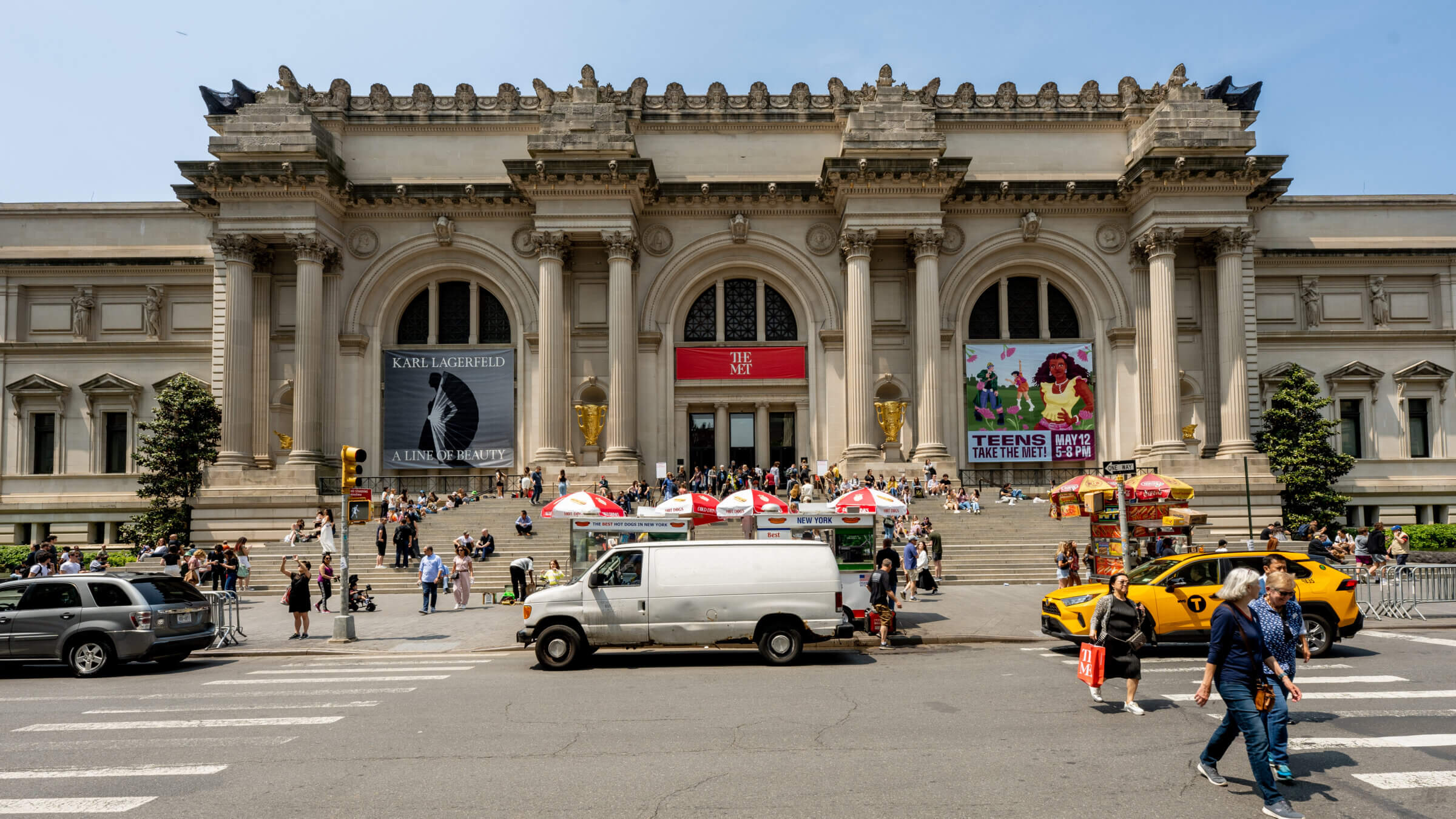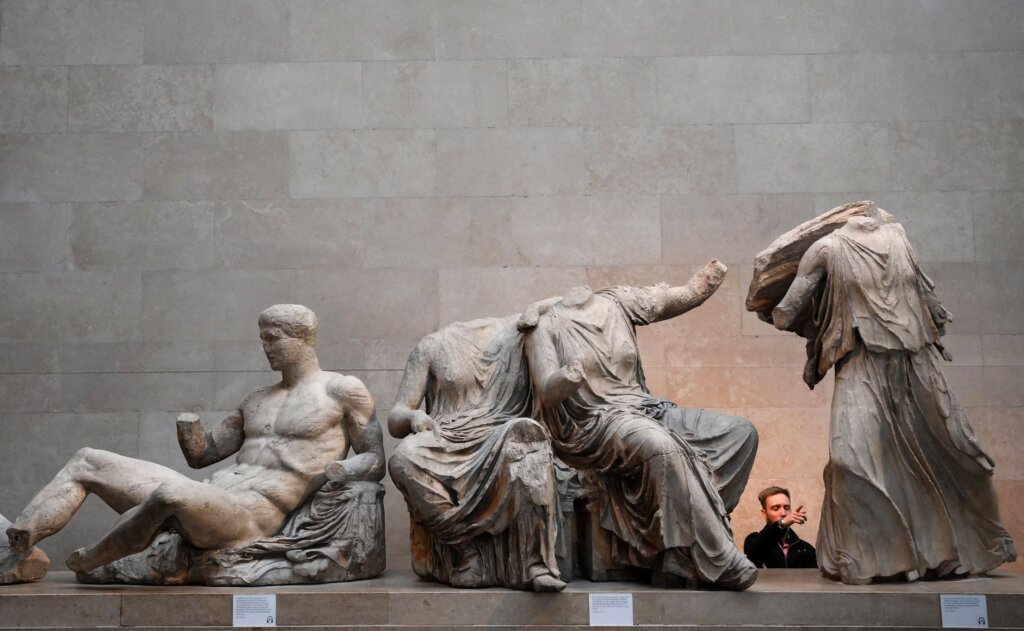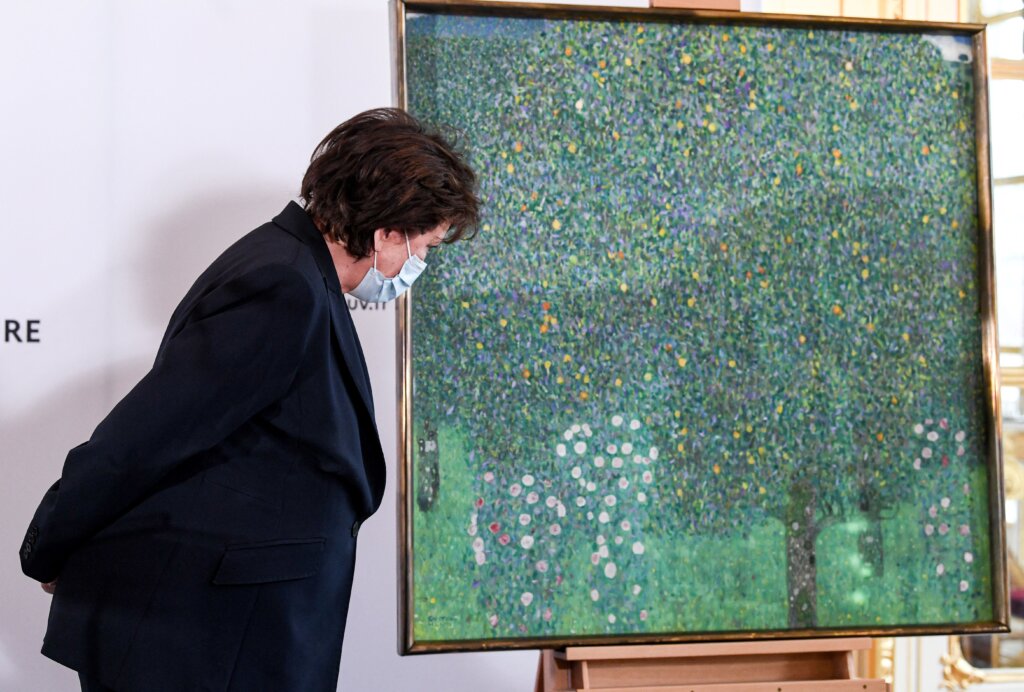The Met will start policing its collections for looted art. Holocaust restitution paved the way
The New York City museum announced an initiative to research provenances and return artifacts to countries including Nepal, Egypt and India

The Metropolitan Museum of Art’s collection has 1.5 million pieces of art and historical objects from around the world, spanning 5,000 years of history. Courtesy of Getty Images
The Metropolitan Museum of Art is taking steps to police its collection for stolen and looted art and artifacts. It’s a move that comes after pressure from law enforcement and the art world, as well as an investigation this March by the International Consortium of Investigative Journalists that found over 1,000 objects in the museum’s collection with provenances tied to people with criminal histories in antiquities trading.
In an article posted to the museum’s site, Met director Max Hollein announced an initiative to further investigate the provenance of works in its collection, including hiring a manager of provenance research, a role many other museums have long had. In the article, Hollein noted pieces the Met has already returned to countries including India, Nepal and Egypt, and the museum’s “proud history” of restituting works stolen by Nazis.
But though Hollein called the need to further investigate the Met’s collections “urgent,” he also reiterated that any return processes would be slow, and he emphasized the history and value of the museum’s collection as a whole. “We are mindful not to make decisions prematurely that cannot be reversed,” he wrote.
Are museum collections more valuable as a whole than anything in them?
In the past, the Met — along with other major museums including the Louvre and the British Museum — have balked at most restitution claims. In 2002, several major museums, including the Met, signed onto a declaration which asserted that “over time, objects so acquired — whether by purchase, gift or portage — have become part of the museums that have cared for them, and by extension part of the heritage of the nations which house them.”
The declaration argued that museums need broad collections to expose people to other cultures as part of creating a diverse society. This is a slight update of the basic argument museums have made for centuries, and one gently echoed in Hollein’s statement: The collection itself is a valuable artifact, and deserves as much guardianship as any individual object within it.

Museums occupy a tricky position. They serve a public interest, safeguarding art and artifacts to share with public audiences, as well as to contribute to research and scholarship. Yet owning a broad collection comes with complex issues of balancing ownership, cultural history, national interests and preservation. Some scholars even argue that the project of museums at large is so fundamentally problematic, so tied up in the history of Western imperialism and paternalism, that they should be done away with entirely.
Lord Elgin, for example, a British noble infamous for removing the Elgin Marbles from the Acropolis in the early 1800s, characterized his actions as “rescuing” and “salvaging” the statues from a country ill-equipped to preserve and appreciate them. Echoing Elgin’s arguments, the British Museum still holds that the marbles are best displayed in the museum’s collection to demonstrate the “interconnected world”; they have not been returned despite repeated requests from the Greek government.
The fraught work of restitution
In recent years, stolen or looted artifacts have gotten more widely controversial as discussions of race and colonialism have become mainstream. Last year, New York’s governor, Kathy Hochul, signed a law requiring museums to label art looted during the Holocaust, even if restitution claims on the work have been settled. The U.S. Supreme Court ruled in favor of a Jewish man trying to reclaim a painting from Spain that his family had sold to the Nazis in exchange for an exit visa. Germany returned bronzes to Benin and the Smithsonian returned a golden disk to Peru.
The kind of looting that brought many objects into museum collections centuries ago is now illegal by international law. But tracing the provenance of artwork and historical objects can be difficult. Often, provenance documents are forged, or buyers ignore holes in sale history.

But even when the documents are sound, the issue is tricky. Many contested pieces were often sold legally, at least technically. The Elgin Marbles, for example, were sold to Lord Elgin by the Ottoman Empire, which controlled Greece at that time; the Greeks themselves had no say in the matter.
And Jewish collectors often sold their pieces to the Nazis, who then sold them to other museums, making a documented chain of provenance. But the sales were made under duress, for far below market value, sometimes in exchange for freedom, as the Jewish collectors attempted to flee.
Similar power imbalances throughout history have become central to the contemporary discourse on restitution, and the restitution of Holocaust artwork has long been at the forefront of this fight. The visibility of the Nazi regime’s atrocities, and the fact that they occurred in Europe, not in a poorer and farther-flung nation, have raised the profile of the issue of looted art and artifacts, and the Holocaust restitution cases have set legal precedents for returning art.
The Met has set a precedent of returning, or paying restitution for, Nazi looted art. But usually drawn-out court processes have been involved, and the burden of proof has been on the party claiming the work was unfairly acquired. Now that the Met is assembling its own team of provenance researchers, perhaps that scrutiny will come from within and countries looking to reclaim artifacts will be able to work with the museum instead of against it.






















